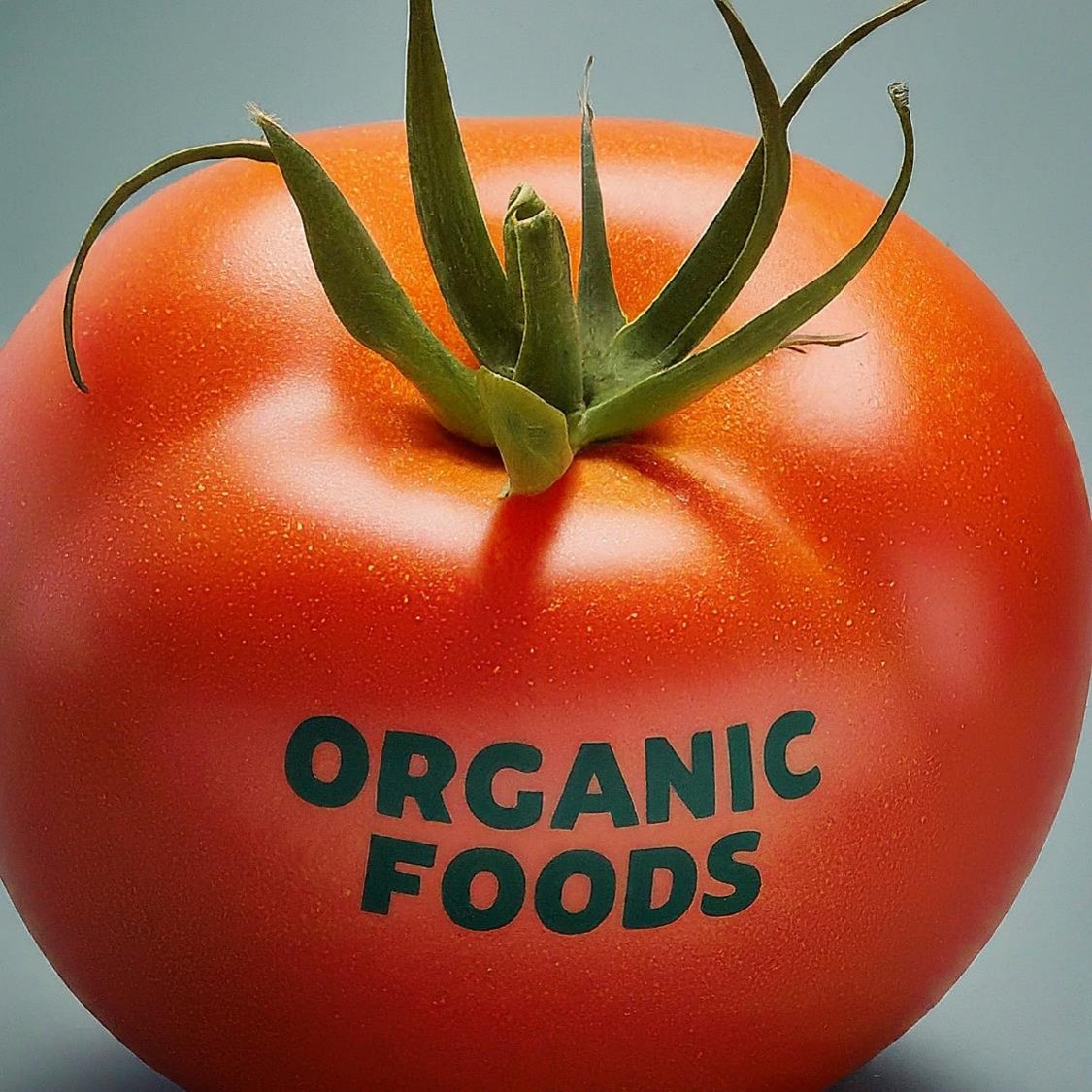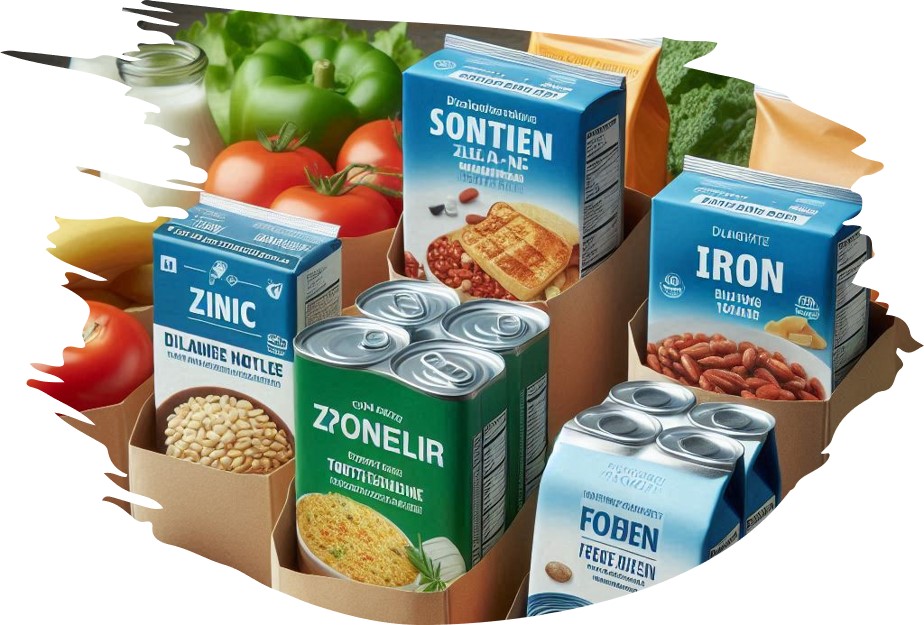Unlocking Health Benefits of Organic
Food: Are You Ready to Transform Your Well-being?
 Generated with Gemini
Generated with GeminiHave you ever wondered if switching to organic food is really worth it?
Organic food isn't just a trend…
It is a food production system that prioritizes sustainable farming practices and promotes the avoidance of synthetic pesticides, fertilizers, and genetically modified organisms (GMOs).
But does this difference translate to tangible health benefits?
Let's dive into some well known organic food benefits:
Organic Food's Nutritional Edge
Research suggests that organic produce may be more nutritious than conventionally grown crops. Studies have shown that organic fruits and vegetables can contain higher levels of antioxidants, such as polyphenols and flavonoids, linked to a reduced risk of chronic diseases like heart disease and certain cancers.
Moreover, organic dairy and meat products often boast higher levels of omega-3 fatty acids, essential fats known for their heart-healthy benefits. Some suggest that organic food contains 50% more omega-3 fatty acids than conventional food (ref).
These findings are promising, but it is important to note that research on the nutritional differences between organic and conventional food is ongoing, and more studies are needed to draw definitive conclusions.
Less Exposure to Harmful Chemicals
When I prefer organic food, I feel like taking steps to self-care for my health.
You know fruits, vegetables, chicken, meat, pulses, and grains labeled with organic food are restrictively exposed to non-organic substances.
On the other hand, some studies have proved that pesticides, insecticides, herbicides, heavy metals, antibiotics, and synthetic hormones found in non-organic food are dangerous to human and livestock health.
Conventional farming relies heavily on synthetic pesticides, herbicides, and fungicides, residues that can linger on crops'. While the long-term effects of these residues are still under investigation, some studies have linked pesticide exposure to health issues like neurological problems, hormone disruption, and even cancer.
This benefit is supported by the first-ever report from "Food and Agricultural Organization" (FAO) of the United Nations that "biodiversity is crucial for our food and agriculture but disappearing by the day."
The report has gathered data from 91 countries and found that '24% of nearly 4,000 wild food species have been decreasing drastically.' Many species of soil organisms, natural enemies of pests and pollinators, are also declining and contributing to breaking biodiversity cycles.
The FAO further warns that if the organisms helping food and agriculture to grow are killed with pesticides and insecticides, humans will never be able to reproduce them. Hence, disturbed biodiversity can threaten future generations of food and agriculture worldwide.
Such organisms in the food biodiversity include all kinds of plants, animals, and microorganisms, such as insects, bats, sparrows, birds, corals, earthworms, fungi, and mangroves.
By preferring organic foods, you minimize your exposure to these chemicals, providing peace of mind for you and your family. It's vital for children, whose developing bodies are more vulnerable to the effects of environmental toxins.
A Healthier Planet, a Healthier Future Generations
The benefits of organic food extend beyond personal health. Organic farming practices prioritize soil health, biodiversity, and water conservation, contributing to a healthier planet for future generations.
By choosing organic, you're not just making a choice for your well-being; you're supporting a sustainable food system that benefits us all. It provides you some satisfaction in fulfilling your responsibility for sustainability. You go for an option that is the least polluted and less polluting. You also take pleasure in protecting your families' health and future.
Unique taste and freshness
 Generated with Gemini
Generated with GeminiSome studies suggest that organic lovers can't differentiate between organic and conventional food. However, consumers say high words about unique tastes when they discuss organic foods.
I was born in a village and used organic food for a long time, even before knowing the benefits of organic food. When I visited Harvard to complete my Master's, I visited organic food stores frequently for organic products like chicken, eggs, coffee, fruits, and vegetables.
I often feel a difference in taste and quality. Yet, sometimes, the non-organic foods grown with integrated techniques like "Integrated Pest Management," where synthetic pesticides are used as a last resort, or farmers stop using pesticides at least thirty days before harvesting, segregating differences becomes difficult.
Organic produce is often picked at peak ripeness without synthetic preservatives, producing a more vibrant flavor and aroma. If you're seeking a more satisfying and enjoyable eating experience, organic food might be the answer.
You should purchase organic food from your local farmhouses for the freshest food. However, if not possible, you can still buy fresh vegetables and fruits from your local organic grocery store, adding freshness to your tasty meals.
Making Informed Choices: Navigating
the Organic Landscape
While the health benefits of organic food are compelling, it's essential to be an informed consumer. Organic certification varies across countries, so familiarize yourself with the standards in your region. Look for labels from reputable organizations that ensure the integrity of organic practices.
Additionally, keep in mind that organic food can be more expensive than conventional options. However, many people consider it a worthwhile investment in their health and well-being. The produce with thin skins, such as berries and leafy greens, are more likely to contain pesticide residues.
Some Objections to Organic Foods
You may find some objections against organic food. Three of them are repeated almost everywhere on the internet.
Less Production without chemicals: Some critics object to the claim of producing 'Organic Foods' without any synthetic pesticides and fertilizers. They say that at one stage or another, farmers have to revert to synthetic chemicals for one reason or another. So, they conclude there is no apparent reason to prefer organic products over their conventional produce.
Pure Organic Produce Contain Eggs and Maggots of Insects: Critics of organic foods rightly object that untreated eggs and larvae in organic food carry diseases, so they are dangerous for humans and livestock.
This objection seems a fallacy for two reasons. It is simple and easy to get rid of larvae and eggs of insects from ripe fruits and vegetables before they are packed. The mangoes are treated with hot water to get rid of eggs and larvae of the fruitflies.
But, it is almost impossible to eliminate pesticide residues from conventional foods. Then, only seven insects out of an estimated 900,000 insect types on Earth have the potential to cause infections in humans. On the other hand, every pesticide and weedicide has shown harmful impacts on humans and soils.
Organic Foods Are Costlier: I agree with this objection. But I can quote a half dozen reasons why organic foods are costlier than conventional ones. I can also cite some reasons why paying a premium over organic foods is less expensive than paying for the side effects of non-organic foods.
Embrace a Healthier Lifestyle with Organic Food
Incorporating more organic food into your diet can be a transformative step towards a healthier lifestyle. It's not just about eating; it's about nourishing your body with wholesome, nutrient-rich foods that support your overall well-being. While the research on the specific health benefits of organic food is ongoing, the potential advantages are significant.
As you embark on your journey towards healthier eating, remember that every step counts. Whether you prefer fully organic or simply incorporate more organic options into your diet, you make a positive choice for your health and the planet.
Are you ready to unlock the health benefits of organic food?
Keep in touch by joining our newsletter and Facebook Group page!
By: Saqib Ali Ateel
What Makes Organic Food Organic?
Is Organic Food Really Organic?
Eating Organic Food Reduces Pesticides
Difference Between Organic and Natural
- Home
- Why Organic Food?
What are iron fortified foods?
Share Your Interesting Story
Everyone has an opinion on organic food. You may have a unique story. You are requested to share your views/story regarding organic foods. We encourage you to disclose your name, location credentials while sharing your point of view.
What's New?
-
What are iron fortified foods?
Iron fortified foods contain additional iron to help prevent deficiencies and support overall health, particularly in children and pregnant women. -
What are fortified foods?
What are fortified foods? How are they different from staple and common everyday foods? -
Baby Organic Food: “To be, or not to be, that is the question”
Baby organic food is free from insecticides, weedicides and residues of synthetic fertilizers thus much safer for babies

DOWNLOAD!



